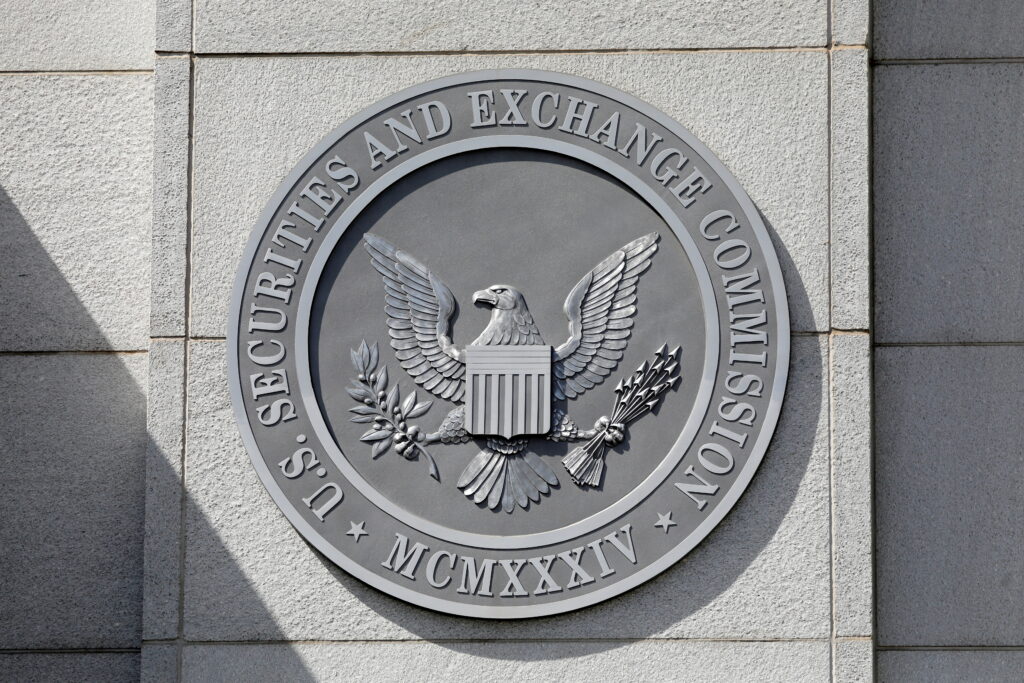A: Individuals, investors, or institutions who experience financial harm due to deceptive practices or false statements can file a claim under federal or state securities laws. This typically includes those misled by insider trading, omissions, or manipulation. A securities fraud attorney can help determine whether your situation qualifies for a civil or regulatory claim and how to most effectively pursue recovery.
Miami Securities Fraud Lawyer
Miami Securities Fraud Attorney

Securities fraud, a complex and severe white-collar crime, encompasses numerous illegal activities. The general framework of these allegations is manipulating the stock or commodities markets for personal gains. These allegations require exceptional criminal defense from a Miami securities fraud lawyer and involve betraying investor trust, violating investment agreements, and manipulating financial markets.
The spectrum of securities fraud is vast and varied, from insider trading and stock manipulation to misrepresenting a company’s financial health and Ponzi schemes. The government alleges that these crimes undermine the integrity of financial markets but also causes significant harm to investors and can destabilize economic systems.
The Gravity of the Crime
Securities fraud isn’t just a financial offense; it also carries severe legal consequences. Classified under federal and state laws, securities fraud is prosecuted vigorously due to its potential to cause widespread financial harm to investors and the market. The penalties can be severe for those found guilty. The complexity of these cases requires a nuanced understanding of financial practices and the relevant legal principles.
Legal Framework in Miami

In Miami, as well as the entire State of Florida, securities fraud falls under the Securities and Exchange Commission (SEC) and the Florida Office of Financial Regulation, i.e., both state and federal regulatory bodies. The legal framework governing these offenses is extensive, encompassing the Securities Act of 1933, the Securities Exchange Act of 1934, and others. These ordinances regulate securities trading, protect against misrepresentation, and ensure transparency in financial reporting. Navigating this intricate legal landscape requires expert legal guidance, particularly as the regulatory environment continues to evolve.
Penalties for Securities Fraud
The penalties for securities fraud are substantial, reflecting the severe nature of these crimes. In Florida state court, the charges range from third-degree felonies for minor offenses to first-degree felonies for severe cases. Convicted individuals can face steep fines, restitution payments to the victims, and significant prison time.
The exact penalties may depend on:
- Severity of the fraud
- Amount of money involved
- Defendant’s criminal history
- Number of victims
First-degree felonies are the most severe, involving large amounts of money, sophisticated schemes, and several victims. The penalties include up to 30 years in prison and fines of up to $10,000.
Second-degree felony cases are larger-scale securities fraud schemes carrying penalties of up to 15 years in prison, 15 years of probation, and up to $10,000 in fines.
Third-degree felonies are less severe crimes concerning smaller amounts of money or fewer victims. It can result in up to 5 years in prison, five years of probation, up to $5,000 in fines, and forfeiture of assets.
On the federal level, you can face maximum imprisonment of 25 years, fines reaching up to $5 million for individuals and $25 million for corporations, and three years of supervised release.
Beyond fines and imprisonment, those convicted of securities fraud can face:
- Loss of professional licenses
- Damage to personal and professional reputation
- Difficulty finding employment in the financial sector
It can also lead to other state or federal charges, including misappropriation of funds, wire fraud, etc.
Florida Securities Fraud Statistics and News Stories
Florida remains a hotspot for securities enforcement. According to the North American Securities Administrators Association (NASAA), state regulators conducted 8,768 investigations in 2023, launched 121 criminal and 102 civil actions nationwide, and clawed back $208 million in restitution while securing 5,531 months of prison time for offenders.
South Florida regulators and the SEC’s Miami Regional Office, located steps from Brickell Avenue, contributed heavily to those figures as investigators track scams that start in condo boardrooms from Coral Gables to Aventura. A recent high-profile example is the arrest of a Miami hedge fund manager.
Federal agents picked him up in Coconut Grove after a Boston grand jury unsealed a six-count indictment alleging a $4 million insider trading conspiracy. Prosecutors say he and his associates traded on confidential merger and earnings data between 2017 and 2019, then lied to investigators and tried to intimidate a cooperating witness.
He faces decades in prison if convicted. Proceedings like this are handled at the Wilkie D. Ferguson Jr. U.S. Courthouse in downtown Miami, underscoring the federal focus on financial crime along Biscayne Bay.
Early Warning Signs of an SEC Investigation
A securities fraud investigation can begin long before formal charges are brought. Investigations often begin when a federal agent identifies suspicious activity or receives credible information from a whistleblower.
Early signs of an investigation could include a request for documents from the SEC, questions from a compliance department, or a sudden freeze on trading accounts. This can all signal an ongoing investigation. Other common warning signs include inquiries into past trades, emails referencing earnings reports, or requests for communication records.
If you notice these red flags, it’s crucial to quickly secure legal counsel. A proactive response on your part may reduce the chances that you face serious consequences under the law, especially when you are dealing with potential charges related to insider trading or market manipulation.
Strategies for Defending Securities Fraud Allegations
Having the right defense strategy can play a key role in weakening the prosecution’s case. Every piece of evidence, from trade timestamps to internal memos, must be carefully examined for inconsistencies or weaknesses in the prosecution’s theory.
Key defense arguments could include showing that information was already public, proving a lack of intent to defraud, or challenging the materiality of the alleged misstatements. Witnesses may play an important role in explaining what happened. If prosecutors misinterpreted financial documents or were misled by witnesses or informants, your charges can be dropped.
Sometimes, business deals go bad, but that doesn’t necessarily mean that a crime was committed. Criminal intent also plays a significant role in the outcome of many white-collar crimes. If you acted in good faith without the intention of committing a crime, your attorney could argue that you did not act with criminal intent.
How Businesses Can Prevent Future Securities Fraud Accusations
The most effective way to avoid securities fraud accusations is to establish a strong internal culture of compliance. Businesses should implement clear trading policies, require pre-approval for employee trades, and regularly train staff on disclosure obligations.
The decision-making processes should also be carefully documented. Also, adherence to established procedures can demonstrate good faith if issues arise. Being proactive helps as well. For example, voluntarily undergoing periodic audits of communications and trading patterns can uncover problems early before they become legal risks.
Leadership must set the tone by emphasizing transparency and ethical behavior. When regulators see that a company is committed to compliance, they may be more lenient or willing to resolve investigations without severe penalties.
How a Securities Fraud Lawyer in Miami Can Help
Since securities fraud is also a federal crime and usually prosecuted on the federal level, you must have a tenacious litigator to fight against the U.S. Government. Agencies like the Financial Industry Regulatory Authority (FINRA) and the U.S. Securities and Exchange Commission (SEC) are the investigative bodies, and their lawyers can prosecute cases at the civil level. However, if you are charged criminally, the U.S. Attorney’s office for the district where the allegations arose will prosecute the case.
At Kirlew Law Firm, we understand the intricacies of securities fraud and the daunting prospect of facing these charges. We recognize that each client’s situation is unique. So, we draw on our vast experience in criminal defense, white-collar investigations, and litigation to develop a robust defense strategy.

From the initial investigation to trial, our team works tirelessly to protect your rights, challenge the prosecution’s evidence, and seek the most favorable outcome. We provide aggressive and effective legal representation to mitigate the impact of securities fraud allegations on your life and livelihood.
We can handle a range of other crimes in addition to fighting securities fraud cases. With Kirlew Law Firm, you gain more than just legal assistance; you gain a partner committed to protecting your interests and securing your freedom.
FAQs
Q: How Much Does It Cost to Get a Fraud Lawyer?
A: Legal costs depend on the complexity of the case, the attorney’s experience, and the nature of the fraud. Some lawyers charge hourly, while others work on alternative fee structures. Most firms offer consultations to explain expectations. One important thing to remember is to find an attorney who understands the complexities of securities law and can handle disputes against brokers, advisors, or financial institutions effectively and efficiently.
Q: Can You Take Legal Action for Investment Fraud?
A: Victims of investment fraud may file regulatory or civil claims against financial advisors, brokers, or companies that engage in deceitful or misleading behavior. This includes misrepresentation, failure to disclose risks, or unauthorized trading. Taking prompt legal action increases the chances of recovering lost funds. A knowledgeable attorney can guide you through options, including arbitration or formal complaints.
Q: What Are the Penalties for Securities Fraud Convictions?
A: Securities fraud convictions may lead to prison time, large fines, and the end of your career in finance or banking. Convictions often include restitution orders and loss of financial licenses. The impact can devastate your careers in finance or real estate in areas like Coral Gables, Brickell, and beyond.
Q: How Do You Prove Securities Fraud?
A: Proving securities fraud requires showing that the party knowingly misled investors or withheld crucial information and that this caused a financial loss. Strong documentation, such as emails, trade records, and witness accounts, is essential. These cases are complex and often involve multiple agencies. A fraud attorney can gather the right evidence and present your case before courts or regulatory boards.
Accused of Securities Fraud? Get the Legal Support You Need.
Facing securities fraud charges can be overwhelming. But you don’t have to go at them alone. Contact Kirlew Law Firm today to schedule a consultation with Brian Kirlew, Esq. and learn how we can help you through this challenging time.
With thousands of criminal cases handled and dozens of jury trials completed, Brian Kirlew, Esq., brings seasoned trial experience and a sharp understanding of complex financial investigations. In 2012, he was honored with the Outstanding Young Lawyer Award from the Miami Chapter of the Florida Association of Criminal Defense Lawyers. He has also been selected as a Super Lawyer, demonstrating outstanding achievement and respect in the legal community for criminal defense.
Based in Miami, our firm is respected throughout South Florida for delivering results-driven, client-focused advocacy. We encourage any prospective client to read our favorable reviews.
Let our expertise in securities fraud defense help you secure a future free from the shadows of these serious allegations.
Call 305-521-0484 or fill out our online contact form for a free initial case evaluation.
Contact a Miami White Collar Criminal Attorney today!
If you are being investigated for a White Collar crime at the state or federal level (or both), the sooner you get a qualified attorney on your side to protect your rights, the better. Brian Kirlew, Esq. is experienced and skilled at handling these complex and sensitive matters, and is here to represent you in court. Our criminal defense attorneys in Miami are proud to offer you a free phone consultation to ensure that we can best serve you. Contact us immediately to get started.

